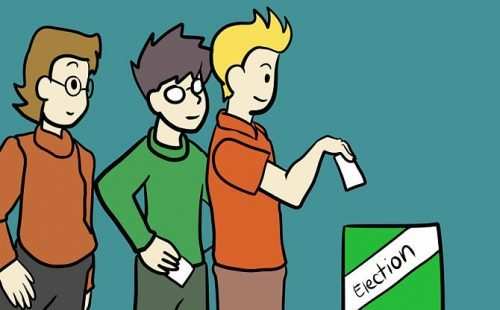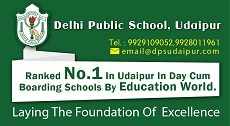Students Union Elections without students’ Issues
Elections for students’ unions in colleges and universities of Rajasthan are scheduled on 24th August

Elections for students’ unions in colleges and universities of Rajasthan are scheduled on 24th August, 2016. Due to BRICS meeting in Udaipur, elections to students unions were held on 17th August. Ideally the students bodies are formed through elections to teach the students the democratic processes and inculcate in them the qualities of sharing, team building, debating and raising pertinent issues so that they become an organic part of the academia, not just a passive recipient of the instruction passed on to them unilaterally.
But in practice the student union elections have become a training exercise for political parties and the universities and colleges nurseries for preparing workers of these parties. All the vices of political party base general elections have entered the campuses including use of money power, muscle power, political power, religious fundamentalism, regionalism, casteism and large scale violence in which often hardcore criminal elements are employed.
The last elections held in M.L.Sukhadia University on 17th August have shown a shameless conduct of the ruling Bharatiya Janata Party and the main opposition party Indian National Congress. The local press is flooded with reports showing that the Home Minister Gulab Chand Kataria was himself steering the election campaign of the ABVP candidate who was also son of a tall BJP leader. Last year also ABVP candidate who won the election uncontested was the son of a BJP MLA. It shows that in the ruling parties the political work has become a career and leaders want to run their politics as a family business. The district committee, municipal ward members and Panchayat level workers were given the responsibility of mobilizing students in favour of ABVP. Surprisingly enough no issues related to students were raised by the ABVP or NSUI candidate. District and Panchayat level leaders of Congress were also mobilized to support the NSUI candidate.
Interestingly enough , both the candidate supported by BJP and Congress lost and a rebel candidate of NSUI who was denied ticket won by a record margin. After winning the elections he did talk of some local issues of education related to the problems of the students of the University like hostels, lack of faculty and bureaucratic red tapism in the University.
But the very serious issues like privatization and commercialization of education, shooting fee structures in IIM and IITs besides other state universities, saffronization of syllabi, lack of regular faculties in colleges and universities, insecure terms of work of contract teachers and guest faculties, mushrooming of colleges, coaching institutes and suicides in education hubs like Kota, lack of sufficient financial support to non-NET research students, lack of adequate hostel facilities, paralysis of UGC and other policy framing bodies, political appointments on the post of vice chancellors, discrimination on the basis of caste and class on the campuses, library services, representation of students in senates, boards of management and bodies of academic decision making etc. did not form the agenda of the contesting candidates.
The regulations based on recommendation of Lingdoh committee were flouted in open day light and the toothless election controlling bodies turned their eyes away. It was an order of the Supreme Court of India which led to the formation of J.M. Lingdoh committee. J.M. Lingdoh, former Chief Election Commissioner of India submitted the report on 26th May, 2006. The honourable Supreme Court of India ordered the implementation of the recommendations of the committee on 22nd Sep. 2006.In compliance of this order the MHRD director Anupama Bhatnagar issued and order No.D.O. F 9-6/2005/0-5 dated 28-11-2006 endorsing the recommendations of the committee and asking all institutions of Higher Education to implement it.
Section 6.3.1 of the recommendations says ” No person who is not a student shall be permitted to take part in the elections in any capacity.” This clearly means that it is an affair of the students and no outside interference is allowed. But the Home Minister himself with the entire party was a part of MLSU elections this year. They might say that they were technically not a part of the elections but if they try to ask themselves honestly, they flouted this regulation. Congress was also not behind in any way. Section 6.5.5 says that 75% attendance is required for a student to be a candidate. Who verifies that. It is an open secret that this is also flouted. The worst is the open defiance of section 6.6.1 which lays down a limit of Rs. 5000 expenditure per candidate. A local newspaper reported that nearly Rs.70 Lakh were spent in MLSU elections. Just one candidate spent Rs. 20 Lakhs one day before the polling. They may be exaggerated data but the truth is that all candidates supported by the ruling political parties spend much more than the stipulated limit. Section 6.6.4 also says that the candidates must use only the voluntary contribution from the student body. Section 6.7.5 says that no printed material including posters, pamphlets should be used.
Looking at such blatant misuse of political and money power should the elections not be scrapped? What good are they doing to student community? Should the country not learn from the JNU Students Election system? But today talking of JNU itself is taken as an act of sedition! This is horrible. The honorable governor of Rajasthan who is also the Chancellor of all state universities and the minister for higher education should exercise their powers to ascertain that the example of MLSU is not followed in other institutions of the state.
Article Contributed by:
Dr.H.S.Chandalia Professor of English JRN Rajasthan Vidyapeeth( Deemed) University, Udaipur
To join us on Facebook Click Here and Subscribe to UdaipurTimes Broadcast channels on GoogleNews | Telegram | Signal





